from Livescience.com https://ift.tt/37UUYPe
via IFTTT
world and global knowledge that you should know
Nature never fails to surprise us with wonderful gifts such as majestic horses, which provide us with great company. However, no matter how pretty they are, there are still some which will really stand out, so check this list of 10 most beautiful horse breeds in the world of equestrian.
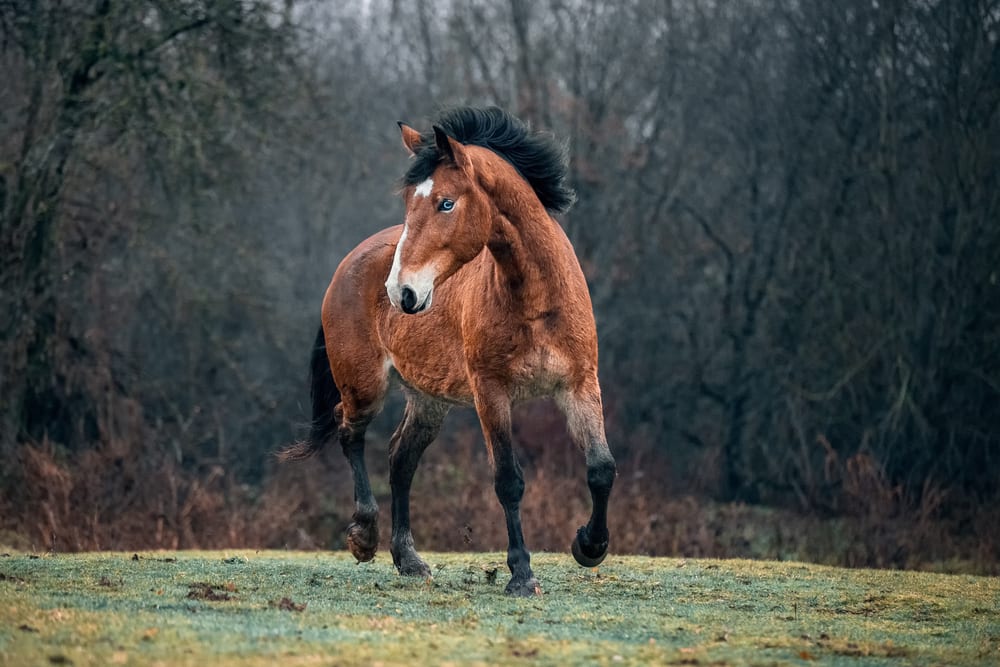
Brought by the Spaniards to the Americans, this breed is equipped with great strength. It’s known for being ferocious, thus gaining the name wild American horse. However, this breed may live in the wilderness but still came from domestic ancestry.
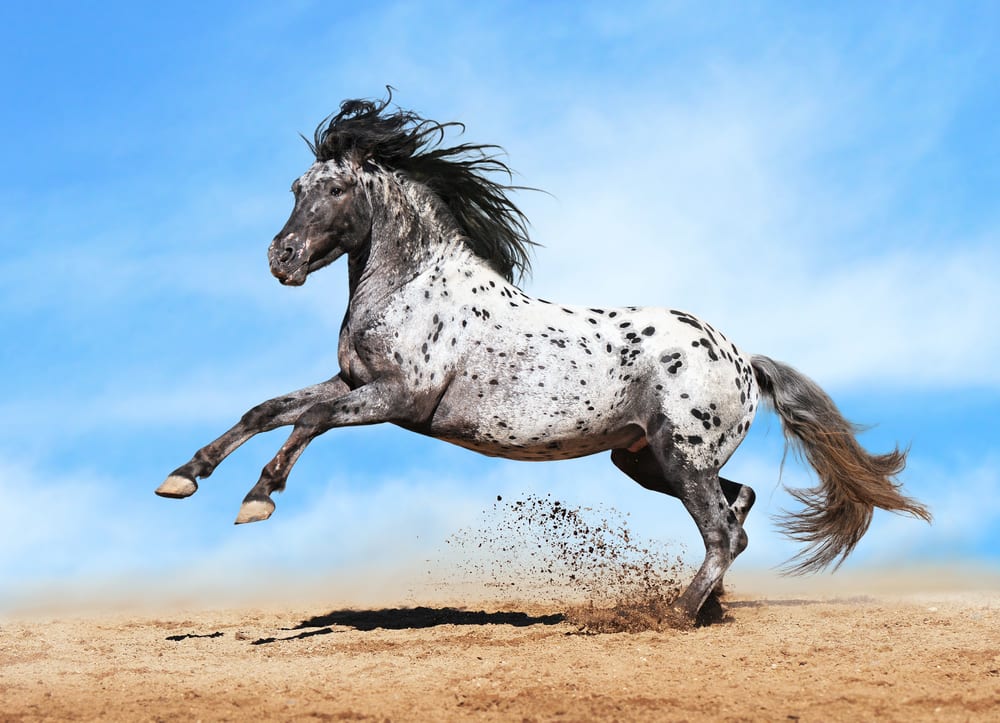
If you’re fond of watching Western movies, then you’ll surely know how popular this horse is. Appaloosa horse breed is great in disciplines like fox hunting and show jumping. This American horse breed is such a beau with the leopard-like spots that spread on its skin.
This horse is a mixture of the purebred Arabians and Tobiano horses which resulted to a magnificent breed of Pintabian. Aside from its beauty, this breed is also known to have an obedient character.
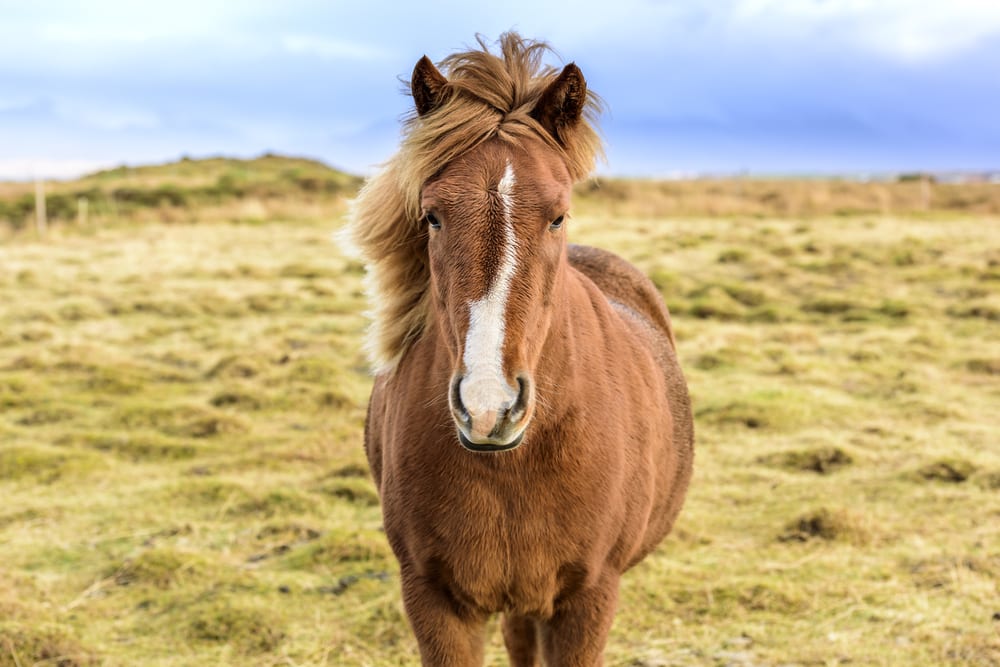
If you’re a fan of ponies, then this breed of horse is for you. The Icelandic horse is not your typical horse with its small and pony appearance. This breed originated in Iceland, thus explains its name. It is vulnerable to some illnesses but is usually used for leisure, racing and even the classic sheepherding work.
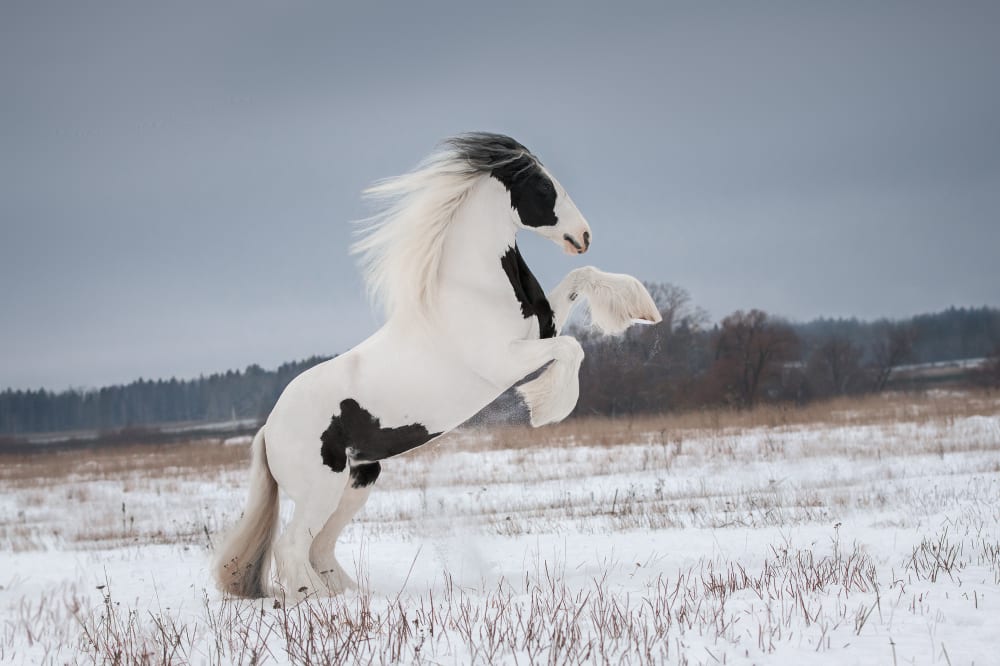
Over the last 100 years, people in Ireland are adamant about making selective breeding of horses to make their chores easier without the need for high food maintenance. Gypsy horse breed is the result of this breeding. It can be easily distinguished thru its blagdon fur (with solid color and splashes on the belly, usually in white), skewbalds (white and brown chicks), and piebalds (with a pinto of black and white).
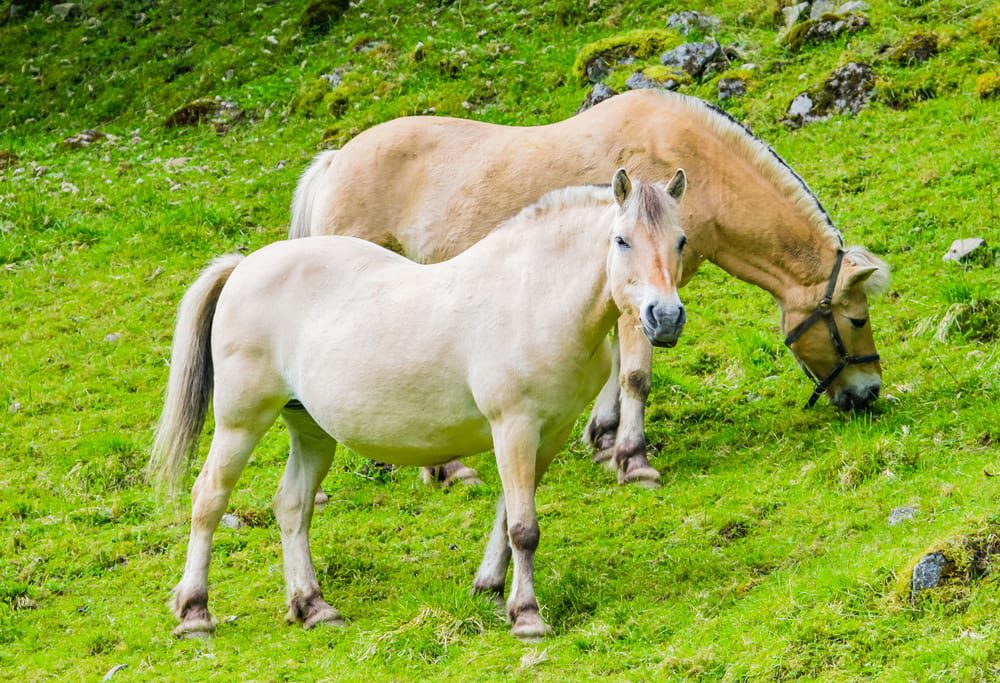
Crossbreeding has been banned in 1907; thus, this breed had preserved its natural and purebred beauty up to the present. The native breed of Fjord is found in the mountainous regions in the western part of Norway. Due to its versatile and strong physique, it has been used in the farming industry for years. This breed is also good for therapy and Norweigian riding.
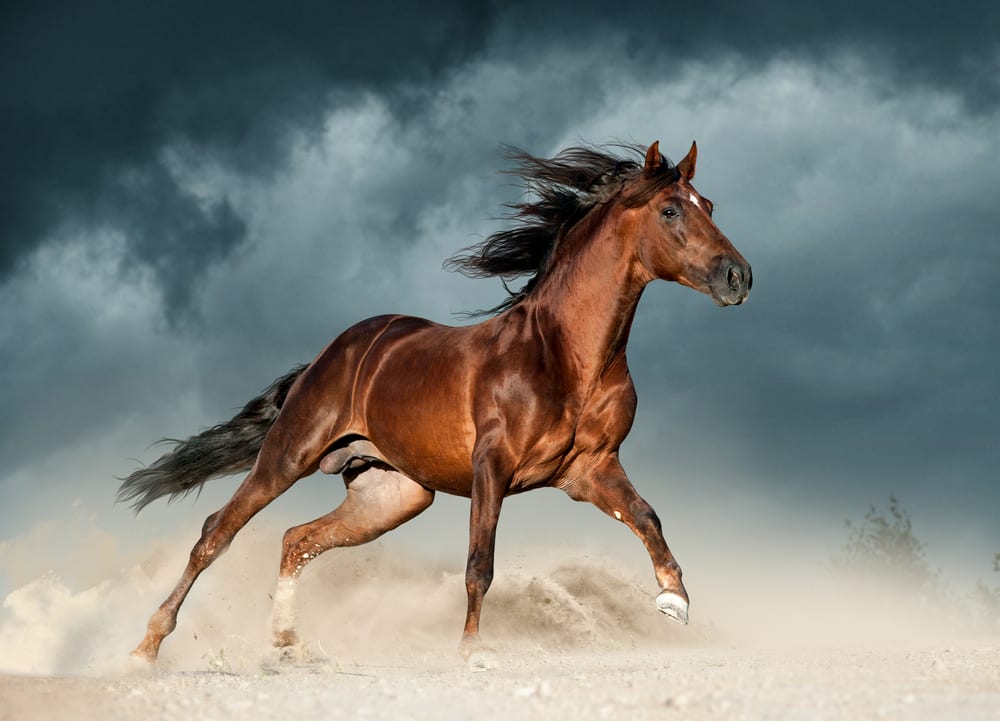
The Andalusian horse is considered one of the oldest horses on earth, which exists since the 15th century. It is commonly known as Pure Spanish Horse from Andalusia. Radiating with grace and elegance plus its huge size, this horse is no wonder considered as a prize or trophy during wars and is commonly used during horse riding. This breed of horse is also famous in movies, namely, The Lord of the Ring, Braveheart, The Chronicles of Narnia: The Lion, The Witch and The Wardrobe and King Arthur.
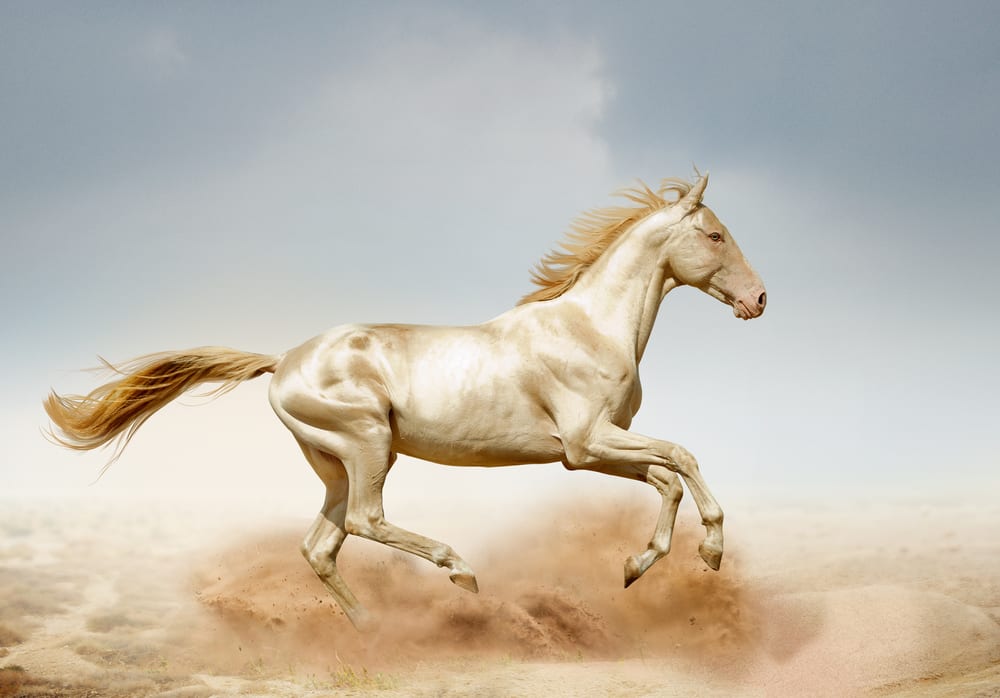
One of the most infamous horse breeds residing in Turkmenistan is the Akha-Teke. Also called “The Horses of Gold” because of its undeniably breathtaking gleaming coat. However, the sad part is that it has numerous genetic illnesses, but it is also good for show racing, jumping, dressage, and being a sport horse because it is naturally athletic.
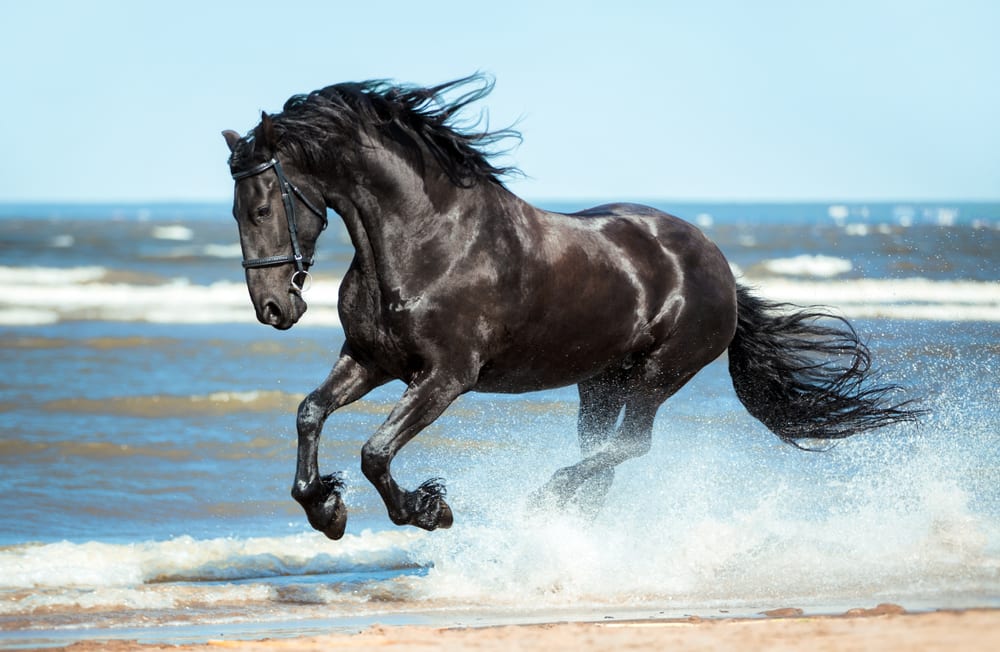
This horse breed is famously known for its gorgeous mane – originated from the Netherlands, in Friesland. This breed is distinguished for its gentleness and good character. It is also seen in the circus due to its majestic black coat and also used by the Germans during their wars. The coat of this horse can be chestnut if not pure solid black. Another fun fact is that the horse of Zorro is Friesian in the movie The Mask of Zorro.
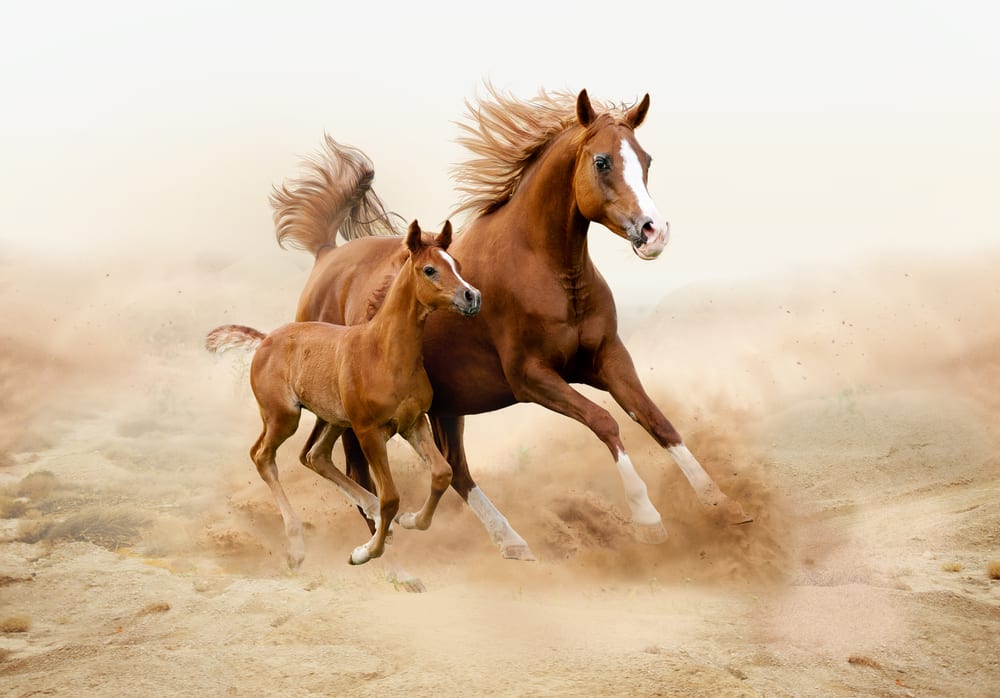
One of the most remarkable horse breeds on earth is the Arabian Horse. This horse breed originated in Arabian Peninsula and is already existing for the last 4,500 years. The Arabian horse is known for its resistance, intelligence and friendliness to humans. This type of breed is commonly picked during therapeutic riding, dressage, show jumping, and exhibition because of its enjoyable and trustworthy nature.
The post 10 Most Beautiful Horse Breeds appeared first on 10 Most Today.
One of the things most kids ask their mom is an adorable puppy. However, one must consider factors before choosing and buying a pup, such as the expenses you have to face in the long run.
There is nothing cheaper than owning a pooch from the animal’s shelter. However, some people prefer a certain breed than others based on the ease of taking care of it and its size. So if you are one of those looking for the cheapest breed of dog to buy, ask your local shelter if they have any of these from our list.
Below are the 10 cheapest dogs:

If you want a pet to play with, then this Cattle Dog might be what you need. This breed of dog is an energetic one and might want to play around for a long time. So if you need a workout buddy, then get one now. However, if you’re not fond of going out and sweating, just consider buying inexpensive toys for your pet to play with. If you are thinking of the costs for this cattle dog’s fur, well, a few baths and combing are just what you need. Lastly, this breed just looks bigger than in person, so there are fewer expenses for his food.

This is one of the most budget-friendly breed of dogs with its short hair that doesn’t require frequent grooming. Rat terriers usually weigh 35 pounds and have a height not exceeding two feet. With this pup’s small physique, you can get this breed for around $200 either from pets shops or pet shelters. However, shops often charge a higher price ranging from $400 to $600. This breed is not prone to health problems related to genes, but smaller terriers are more vulnerable to hip dysplasia.

This is a very low maintenance dog given its short hair of toy fox terrier. Food costs aren’t that high with its height that can reach about 11 inches, so it would be easy for you to maintain its good fitness and health.

This breed is known for being pricey, with a price ranging from $200 up to $1000 if you get it from a breeder. You might be raising your brows right now or frowning because we included it on this list. But you can get this adorable breed at a lower price by asking from the animal’s shelter. Fortunately, numerous shelters around California have this breed that they have rescued. Good news for you, this has low maintenance cost and a healthy breed, so no need to worry about frequent check-up visits.

A purebred labrador can be heavy on the wallet, especially if from breeders. However, there’s always shelters to lighten the burden and expenses for you. If you want an occasional visit to the clinic due to ailments, then purebred Labrador might be off from your list. Fortunately, Labrador mix isn’t prone to many illnesses, so fewer expenses. This breed is known for its easy temperament and loving attitude, helping reduce your stress from work.

If you want a pet that you can keep for a long time but isn’t costly, think about getting this cute beagle. This small breed of dog that weighs about 25 pounds can live up to 12 or even 15 years. Don’t worry with its short fur that needs low maintenance, and expenses aren’t that high. In addition to that, you’ll just need to spend around $10 on its food. Ideal right? So put this beagle on your list of puppies to buy.

Notice the small size of the breed, this just means one thing – inexpensive food bill, and their short coat means you’ll not spend too much on grooming! However, health problems may occur when this kind of breed reaches seniority, such as severe spinal cord problems (which affects 1 out of 4 dachshunds) that can lead to paralysis.

If you want a huge dog that doesn’t need high maintenance, you might want to consider having an english foxhound. Weighing 65 pounds and having an easy-to-clean coat, leaner body shape, and good temperant making it a budget-friendly breed dog.

These dogs weigh about 11 pounds and their coat is not that high maintenance to clean. Their food costs around $200 a year.

At times, expenses incurred increases as time goes by. These are pedigrees that require much more attention with short activities like playtime and exercise. Dog owners tend to opt for daycares or dog toys to tend to such needs, but these may come with a hefty price. On the other hand, basset hounds are quite the opposite, for when they are at full-size and eat better, they don’t demand much equipment to burn energy. Basset hounds are easy-to-maintain.
The post 10 Cheapest Dogs You Can Have appeared first on 10 Most Today.
A quote from C.G Jung once said ”You are what you do, not what you say you’ll do. ” All of us have goals. However, not everyone is serious about those goals. You can talk about your goals and plans a thousand times, but nothing will happen without any action. In this situation, the saying ‘action speaks louder than words’ is applicable.
Here is the list of the top ten reasons why people usually fail in reaching their goals.

If there’s a common denominator among successful people, it is the word commitment. It is essential to commit to something, especially your goals, in order for you to do everything it takes to reach it. Most people aren’t committed to their goals, thus making it alright for them even when they fail a lot of times. In this case, you will never really be successful in achieving what you want to achieve. Have a mindset of thinking that your goals are a ”must” and giving up is not an option. Set your commitment high and do everything to hit all your goals.

Vague goals will lead you to vague results. This is one of the usual problems with people. Most of us have goals that are vague. When you ask someone about their goals, he or she will most likely give you vague answers. This is the reason why it’s essential to have a specific goal in life. Knowing what you want to achieve can help you create a particular plan you will use and the specific results you want to see. So if you want to be successful in achieving your goals, then evaluate whether those goals are specific or not.

One of the common reasons people fail to achieve their goals is that they don’t do anything to achieve them. People usually procrastinate instead of working on the goals they want to achieve. They would rather watch movies or play games than do something to be a step closer to their dreams.
A quote once says,” A goal without a plan is just a wish.” A plan without an action is just a dream. If you want to see results, then you better work for it. Decide right away about what you really want to do if achieving your goals or watching movies on Netflix.

Another typical reason people fail is that they get distracted easily. They are the type of people who set a goal on their mind, but after quite some time, they focus on other things — forgetting the goals they are trying to attain.
This is one of the reasons why being focused is essential in achieving your goals. Success and reaching your goal take some time. You don’t have to rush and jump from one goal to the next one without even giving a try.
You must remember that when you didn’t see the results that you want, it does not mean that you have to give up and that your goals didn’t work. Try your best not to get distracted and try as many times as you can until you reach your goals on your bare hands.

It is essential for your goals to be exciting and motivating for you so that even when struggles come in your way, that will not be enough excuse to give up on your goals. Strong willpower is also essential in achieving your goals successfully. Try to associate strong emotional reasons with your goals to have great motivation, fire, and drive to pursue them.

Most people doubt themselves, especially their abilities. Some may have specific goals and plans; however, they doubt themselves and let their mind be filled with the question, ”What if I fail?”.
Doubt is okay until you let it overpower you. It can prevent someone from reaching his maximum potential, thus being a hindrance in achieving his goals.
Most successful people became successful because they believe in themselves, their abilities and the products or services they offer. If you won’t believe in yourself, then who else will? Believe in your abilities and believe that you can achieve your goals in life.

Achieving and reaching your goals and dreams requires great focus on being effective and efficient. You must not only focus on things but on the right things. Mostly, we have several goals, but we must set our mind what the most important goal we must put our focus on is.
If you are going to study successful people’s lives and stories, you will notice a pattern–they always focus on the things they do and the goals they want to attain. These people are deemed successful because they are the best, and they produce incredible results in their careers. And one of the reasons they became like this is because they focus on mastering their passion and crafts.
That is why it is essential and advisable to identify your most important goal right now and focus on attaining this goal first.

How many opportunities slipped from your fingers just because of your thousands of excuses?
Giving too many excuses limits you from achieving excellence from your crafts. We must always keep in mind that successful people keep on moving forward. While unsuccessful people on the other hand, are good at coming up with different excuses preventing them from achieving growth and success in their lives.

Commonly, we see people who jump and switch from one company and business to another. When their business failed, they will try another business venture or change industry, and the cycle will go on and on.
Most people’s determination deteriorates when they experience failure. When they do not see the results they want from the things they’re working on, they give up too easily and will try to chase another thing.
This thing applies the same to setting goals. Most people fail to reach and attain their goals in their lives because they are not good at handling their failures. They resort to giving up, changing goals, or choosing shortcuts when they did not get the results they want or when they face difficulties along the way.
It is a must to understand that failures are ingredients to success. They are essential to mold you as a wise person. Remember, most successful people failed several times and you are not an exception. Failures are lessons and feedback — a must ingredient in the success that we always want to achieve.
 Lastly, people resort to giving up too easily when they face setbacks and difficulties. They settle on letting go of their dreams and goals instead of improving their methods and strategies and finding ways to achieve the things they want.
Lastly, people resort to giving up too easily when they face setbacks and difficulties. They settle on letting go of their dreams and goals instead of improving their methods and strategies and finding ways to achieve the things they want.
Achieving your goals, dreams, and success is not as easy as it sounds like. These things take great effort and hard work, and we must be ready to face hard times and difficulties without giving these things up. Read these 10 most effective steps to successful goal setting.
The post 10 Most Obvious Reasons Why People Fail on Reaching their Life Goals appeared first on 10 Most Today.